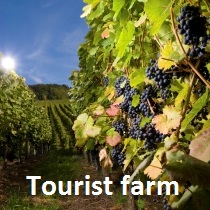SloveniaHolidays.com > Info > Useful Information
Useful information
National holidays and work-free days
Slovenia has 11 national holidays and 13 work-free days. They are:
- January 1st and 2nd – New Year
- February 8th – Prešeren Day (Slovenian Culture Day)
- March/April – Easter Monday
- April 27th – Insurrection Day
- May 1st and 2nd – Labour Day
- June 25th – National Day
- August 15th – Assumption Day
- October 31st – Reformation Day
- November 1st – All Saints' Day
- December 25th – Christmas Day
- December 26th – Independence Day
Postal services and communications
The Slovenian Postal Service provides its customers a palette of services. In addition to sending standard letters and other messages, packages, telegrams or faxes, you can also buy stamps, postcards, greeting cards, phone cards and other items at post offices.
At the same time, post offices provide monetary services such as money transactions, lottery tickets, sports bets and cash withdrawals for Maestro, Maestro, Activa Mastercard and Mastercard clients. More
Crossing the border-foreign representative offices-customs laws-pets.
In 2004, Slovenia became a member of the European Union. There are no longer any customs checks at border crossings with Austria, Italy or Hungary. Traffic is only checked by border police. Once Slovenia fully implements the Schengen Agreement, border control will be strengthened on the Schengen border with Croatia. Crossing the border at all seaports, airports and land crossings is regulated by EU rules.
Citizens of the European Union, Switzerland and Croatia may enter Slovenia with up to 30 days with only an identity card. All other foreign citizens require a passport. More
Safety
Slovenia is a safe country. However, crime still occurs, especially in major cities. The most common crimes are thefts. Be careful: keep an eye on your belongings, don't carry more cash than you need, don't leave your wallet or valuables in visible places (ie. in your car), lock your car and don't leave valuables inside it. At night, avoid dark and empty streets and park cars on well-lit public parking lots.More
Medical care and health insurance
Slovenia has excellent health service. There are health centers in all cities as well as facilities providing health care in smaller towns. They are mostly open from 7am to 8pm. Working hours in pharmacies are usually similar. After 8pm, medical teams are on standby for emergencies in all major cities. More
Language
The official language in Slovenia is Slovenian, the mother tongue of approximately 2.4 million people. 1.85 million of them live in Slovenia, around 140,000 in the border areas of neighbouring countries (Italy, Austria, Hungary and Croatia) and approximately 250,000 living in diaspora in Germany, France, Canada, the USA, Argentina, Australia and the former Yugoslav countries. Slovenian is the second language of members of the Hungarian and Italian minorities in Slovenia. More
Important document
The passport's primary purpose is crossing international borders, but it can also be used to prove your identity or nationalities. Most countries only accept passports that are valid for at least three or six more months.
An identity card is used to prove your identity and nationality. Citizens of the European Union, Swizerland, Croatia and countries of the European Economic Area (Norway, Iceland, Liechtenstein) can enter Slovenia for up to 30 days with only a personal identification card.
Valid identification is also needed by children. If a child is younger than 15 years and is travelling to Slovenia with a stranger, he/she needs written permission from a legal guardian.
Visas for stays in Slovenia under 90 days are not needed by citizens of the European Union, Australia, Canada, Israel, Japan, New Zealand and the USA. Visitors who require a visa can obtain it at Slovenian embassies, consulates and border crossings.
If you plan to stay in Slovenia longer than 90 days, you must obtain a temporary residence permit from the Foreigners' Office.
Driving licences issued by EU states, Norway, Iceland or Liechtenstein are valid in Slovenia, and Slovenian driving licences are valid in those states. Otherwise, an international driving licence is needed for countries who have not signed the Vienna convention. An international driving licence is valid for maximum of three years.
A gun permit is a document that permits the ownership and carrying of guns for the purpose of self-defense, sports and hunting. EU citizens require a gun permit or European pass for the transportation of guns within the EU and must register the weapon with the border authorities. Foreigners without permanent residence within the EU require permission from the country they are entering as well as permission from all countries they will be travelling through. The weapon must be registered at the outer border of the EU, and permission is given out after agreement is given by all transit countries.
A green card is an international automobile insurance certificate that ensures compliance with mandatory vehicle insurance laws in the country you are visiting. You must present the green card at the national border and if you have an accident. It is required for all foreigners except for citizens of countries that have signed an agreement with Slovenia.
The vehicle documents you need to have with you when travelling around Slovenia by car include: a valid driving licence, vehicle registration certificate, permission to drive the car (if the car is not registered to you) and the green card.







